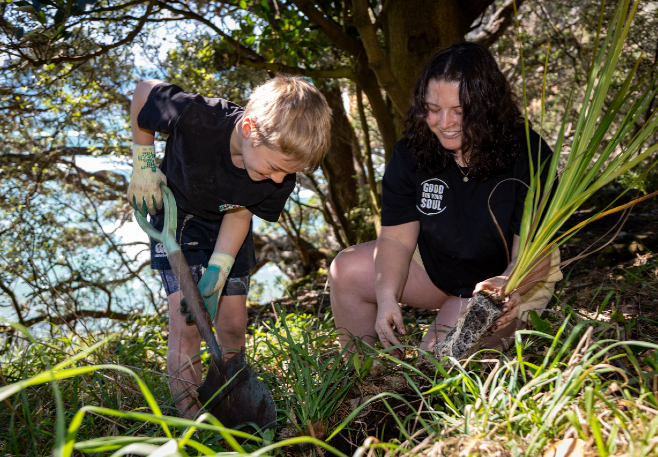Work is underway at the Hahei Beach Short Walk to remove 16 invasive conifers as the track reinstatement project clicks up a gear.
The conifer removal is part of the Mautohe Cathedral Cove Sustainability Project reinstating walking access to the picturesque Coromandel beach. Funded by the International Visitor Conservation and Tourism Levy, this long-term initiative is focused on safeguarding the cultural and environmental values of this iconic site and enhancing the visitor experience.
Local arborists have been on site since Monday, September 1, removing the pinus pinaster trees, more commonly known as maritime pine or cluster pine.
DOC Mautohe Cathedral Cove sustainability project manager Michaei Sparrow says the exotic trees can spread fast, threatening this stunning landscape and crowding out native vegetation.
“By removing these conifers, we give native plants and trees a better chance to flourish along the Hahei Beach Short Walk and help enhance the mauri of the area.
“The largest of these conifers has a trunk girth of a metre and is about 35m tall. Mature trees release masses of windblown seeds. If not removed, they’ll take hold here and can spread widely, becoming extremely costly to control.”
The conifer removal follows a successful community planting day at nearby Waimata Gemstone Bay. The planting – led by Destination Hauraki Coromandel as part of its Good For Your Soul initiative – saw 300 native trees planted by members of Ngāti Hei, community members, and staff from local public sector agencies.
“This planting ensures Mautohe Cathedral Cove can be enjoyed now and safeguarded for future generations,” says Michael.
“What makes it special is that it’s a collective effort – iwi, residents, businesses, visitors, and tourism operators are all contributing.”
The conifer removal comes during Conservation Week 2025 and the launch of DOC’s Always Be Naturing campaign, which encourages New Zealanders to take action for nature.
“It’s fantastic this community values and takes action to care for and enhance this incredible place,” says Michael.
“There are simple and easy ways we can all do our bit for nature. Visit the ‘Get involved’ section of the DOC website to see what you can do today.”
An estimated two million hectares of New Zealand is affected by wilding conifers. Uncontrolled infestations spread at 5 per cent per year (approx. 90,000ha/year). Without any control they will form dense forests that have environmental consequences on our native ecosystems, use up scarce water, and alter iconic landscapes.
The arborists’ work is expected to be concluded on Friday, September 5. The wood from the felling will be broken down at site and left to rot down naturally



